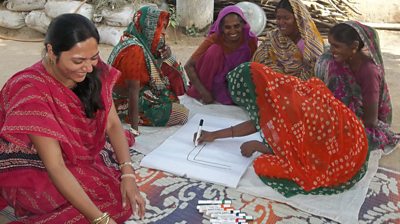Downloads
Donors, policy-makers and practitioners need evidence to inform their policy and programming choices, resource allocation and spending decisions, yet producing high-quality research and evidence and making use of it is not straightforward. This is particularly the case in sectors that do not have a long history of research or evaluation, those that are operating in fragile states with low research capacity and those that are trying to bring about complex change. The media for development sector is one such example.
This working paper is designed to identify what evidence is being used in practice and to highlight what is now needed to move the media for development evidence base forward. It aims to be used as the start of a sectorial conversation to inform an “evidence agenda” for media for development.
Based on a series of interviews with practitioners, evaluators and donors working in the media and development sector, it examines their understanding of “what counts” as evidence and their views of the existing evidence base, and:
- Argues that compelling evidence of impact does exist and is being used – particularly in the field of health communication
- Contends that more evidence is needed to answer specific questions about the ways media and communication affects people and societies – and how this varies by local context
- Highlights where evidence gaps need to be filled through strategic, longer term collaborative investment in evaluation to build the evidence base
- Shares priority research questions for the sector
- Calls for an “evidence agenda” to create shared evidential standards to systematically map existing evidence, and establish fora to discuss and share existing evidence
The paper concludes without such an agenda, as a field, we risk evidence producers, assessors and funders talking at cross purposes. We also risk failing to properly understand and represent the best evidence that does exist in the field. The ultimate risk is that policy-makers and donors, despite recognising the value of media for development, side-line it in favour of other investment approaches with established evidence bases.
This working paper is open to consultation. The appendices contain further information, including the complete list of evidence examples and priority research questions. Readers may find these useful for more technical conversations.
For further information and to comment on this paper please contact media.action@bbc.co.uk using the subject line: Evidence Paper consultation.
